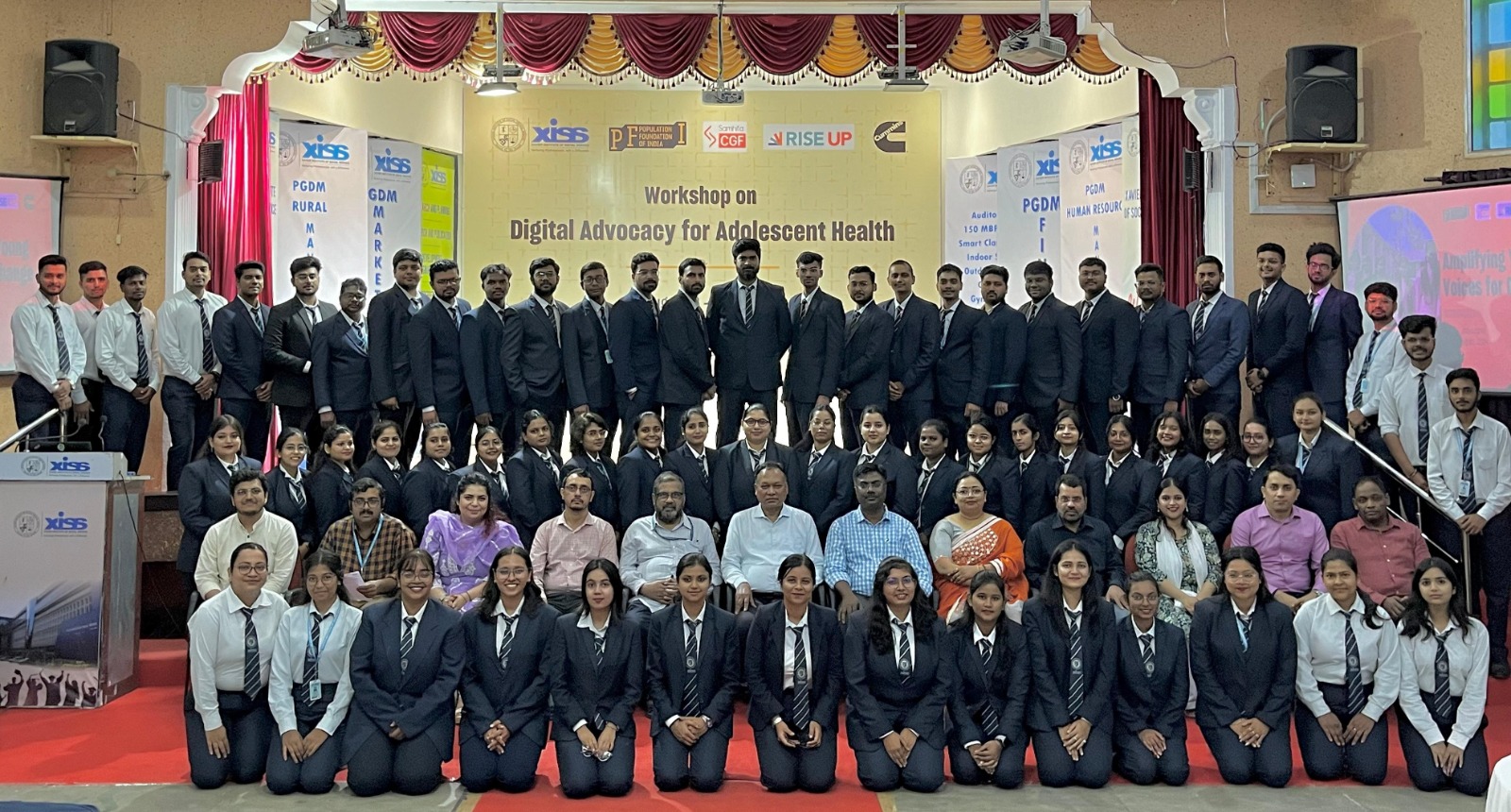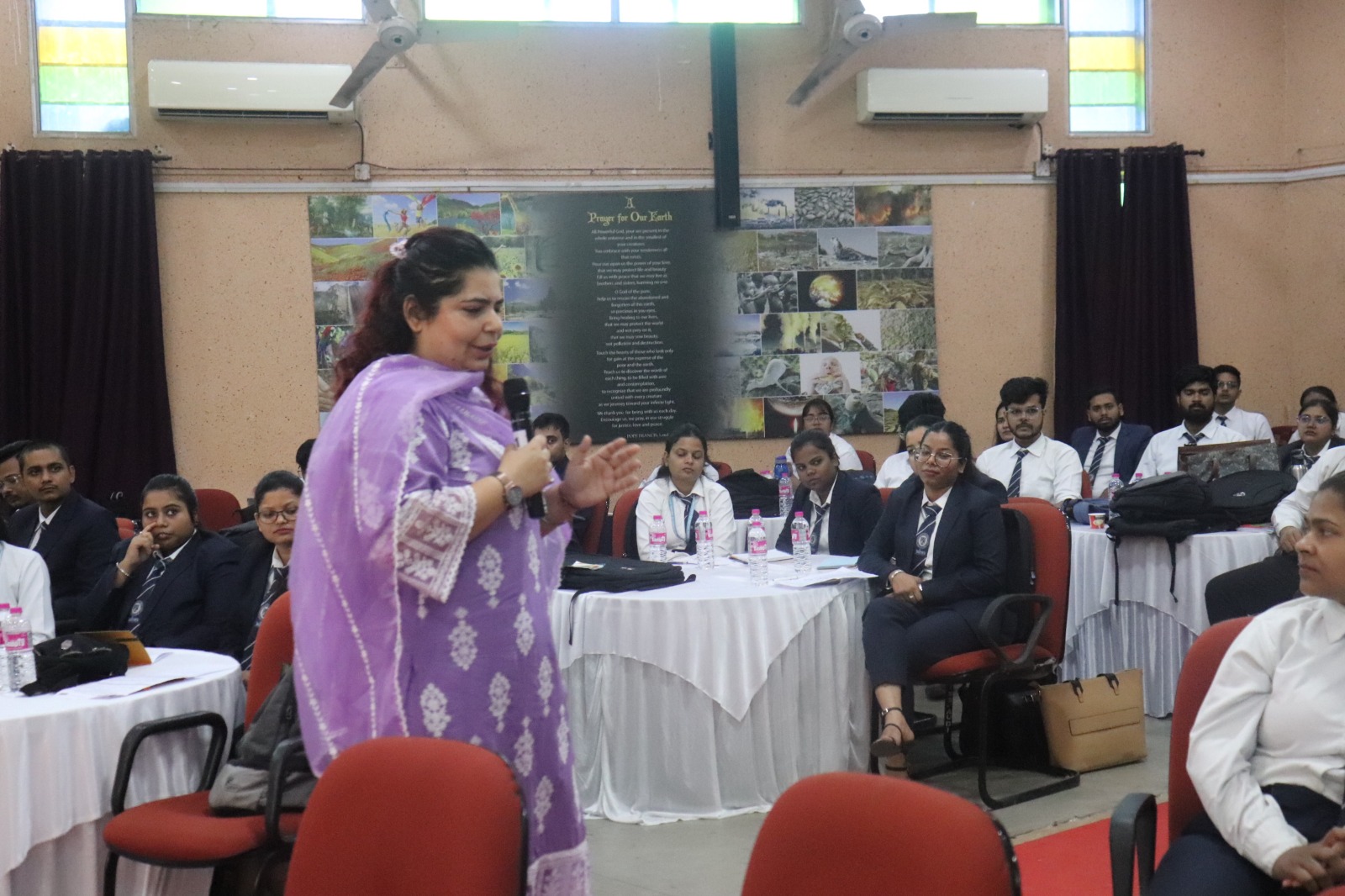Workshop on Adolescent Reproductive and Sexual Health and Digital Advocacy at XISS

Xavier Institute of Social Service (XISS), Ranchi, in collaboration with Population Foundation of India (PFI), New Delhi organized a one-and-a-half-day workshop on Adolescent Reproductive and Sexual Health (ARSH) and the use of digital platforms to amplify community voices on 2-3 August 2024 in XISS.
Dr Anant Kumar, Head, Rural Management Programme, welcomed the PFI team and highlighted the critical importance of addressing adolescent reproductive health in the state, where fertility rates are high, and many districts see 40% of girls marrying before the age of eighteen. He emphasized the need for advocacy in reproductive and sexual health and hygiene, focusing on curative, preventive, and promotive healthcare.
Dr Amar E. Tigga, Dean, Academics, XISS, discussed the adolescent healthcare scenario in India and in developed countries like Australia, where sports and health are prioritized. He encouraged Rural Management students to apply their workshop learnings for societal benefit. Dr Raj Shree Verma, Assistant Professor, XISS shared about the need and objectives of the workshop. Ms Riya Thakur, Associate Lead of PFI, introduced the workshop, followed by key milestone and emotional mapping sessions, and discussions on consent and reproductive rights took place.

Ms Shivangi Tripathi, Mr Shouvik, and Mr Nilanshu Kumar discussed the uses of SnehAI, a tool to empower and protect adolescents, and engaged students in activities to raise awareness about ARSH. Topics covered included sex, gender, sexuality, and consent, with an emphasis on the necessity for consent to be freely given and revocable. The workshop also addressed conception, contraception, and the Rashtriya Kishori Swasthya Karyakram, detailing its objectives and implementation.
Ms Shivangi Tripathi, Mr Shouvik, and Mr Nilanshu Kumar discussed the uses of SnehAI, a tool to empower and protect adolescents, and engaged students in activities to raise awareness about ARSH. Topics covered included sex, gender, sexuality, and consent, with an emphasis on the necessity for consent to be freely given and revocable. The workshop also addressed conception, contraception, and the Rashtriya Kishori Swasthya Karyakram, detailing its objectives and implementation.





